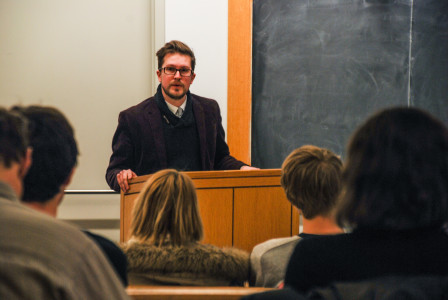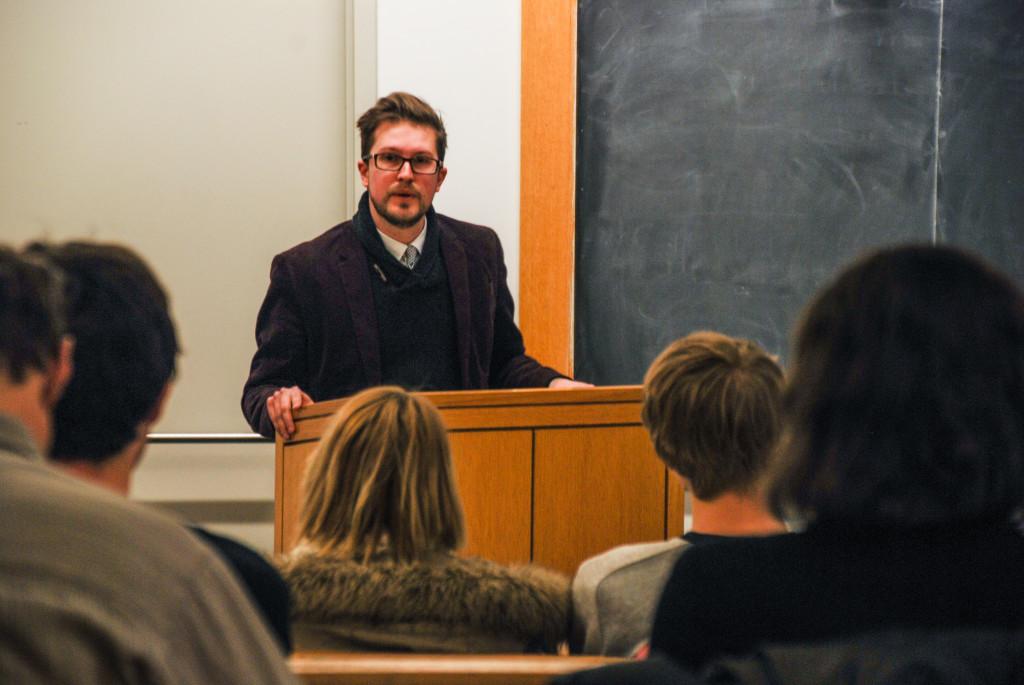Having begun his academic endeavors at Grinnell with a Central and Eastern European Studies concentration, Cain Elliott ’06 is now a faculty member of the Graduate School for Social Research (GSSR) at the Institute of Philosophy and Sociology of the Polish Academy of Sciences in Warsaw, Poland.
On Wednesday night at 7:30 p.m, Elliott gave a talk in ARH 102 entitled, “On Authority,” in which he discussed, as enumerated in an interview prior to the talk, Alexander Kojeve’s concept of authority, the classification of types of political authorities and his perception of an absence of political authority or enthusiasm for political authority in left-wing politics.
“The main issue of … the things I’m doing is the concept of catastrophic existential risks, things like political ecology and machine intelligence which is what I research at my position …” Elliott said. “I’m concerned about what we can do in socio-political philosophy to avoid the extinction of the human future. That’s what I really care about.”

Photo by Mary Zheng.
Elliott believes that, based on the current path, the future looks short-lived for the human race.
“Right now the human future itself looks very short, 120 years, 150 years. All of us who have had the opportunity to think and to study should in some way work in mitigating these kinds of risks,” he said in his talk.
However, Elliott sees a potential for salvaging power in the hands of global leadership figures.
“… the question of authority is also a question of leadership as a means to take action towards mitigating such risks,” he continued.
Professor Todd Armstrong, Russian, who served as Elliott’s concentration advisor, helped to arrange the short course Elliott has been teaching, called “The Explosive East,” which concerns Lenin and the aftereffects of Leninism on Eastern European Leftist thought.
During his talk, Elliot criticized the lengthy deliberations of political leaders as being just a series of ineffective discussions.
“Look what happens every time we have a global summits on climate change. We have a summit in Poland, followed by a summit in Peru, which is followed by a summit in Paris. At each one of these summits they agree to meet again to work on the agreement,” he said.
Elliott concluded his talk with an appeal to the power to enact change he sees in Grinnellians.
“Being back here has reminded me how fantastic Grinnell students are and how much potential and opportunity there is for Grinnell students to make a difference,” Elliott said. “Look at the taxonomy of existential threats that exist, pick one, focus on it, find a way to minimize it and you’ll do something really valuable.”





























































